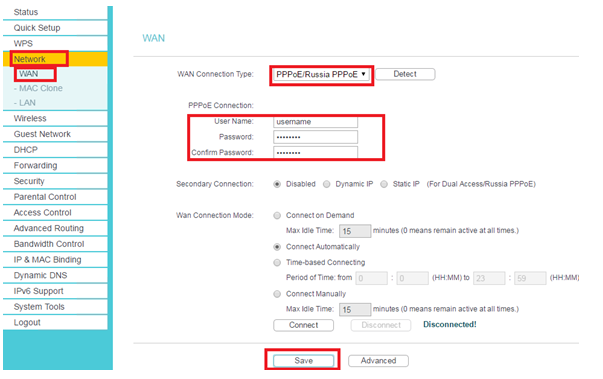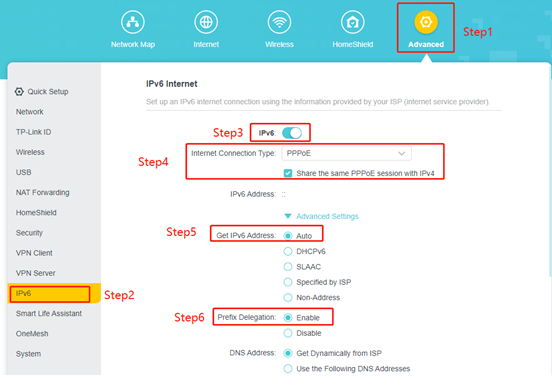Configure PPPoE connection on TP-Link Wi-Fi Router
Before you begin:
- Gather your PPPoE credentials: Username and password provided by your internet service provider (ISP).
- Connect your computer to the router: Wired connection recommended for stability during configuration.
- Open a web browser: Chrome, Firefox, etc.
Steps:
- Power on your router and computer.
- Launch a web browser and enter the router's IP address in the address bar. The default IP address is usually 192.168.0.1 or 192.168.1.1. If you haven't changed it, this should work.
- Login to the router's web interface: Enter the username and password for your router. The default username is usually admin, and the password is left blank or set to admin. If you have changed these credentials, use the ones you set.
- Navigate to the Network settings: The location may vary slightly depending on your firmware version. Look for options like "Network," "WAN," or "Internet Setup."
- Select PPPoE as the WAN Connection Type: From the available options, choose "PPPoE" or "PPPoE/Russia PPPoE" depending on your region.
- Enter your PPPoE credentials: In the relevant fields, enter your PPPoE username and password provided by your ISP.
- Save the settings: Click "Save" or "Apply" to save your changes.
- Wait for the connection to establish: It might take a few minutes for the router to connect to the internet using PPPoE.
Navigate to the wireless settings:
- The location may vary slightly depending on your firmware version. Look for options like "Wireless," "Wireless Settings," or "Wi-Fi."
3. Configure the basic settings:
- Enable Wireless: Make sure the wireless radio is enabled.
- Wireless Network Name (SSID): Choose a unique and descriptive name for your Wi-Fi network. Avoid using special characters or spaces.
- Region: Select your region (e.g., United States) to comply with local regulations.
- Channel: You can leave this on "Auto" for automatic selection or choose a specific channel if you experience interference.
4. Configure the security settings:
- Authentication Type: Choose a strong security protocol like WPA2-PSK (AES) for best protection.
- Pre-Shared Key (PSK): Create a strong password for your Wi-Fi network. It should be at least 8 characters long and include a mix of uppercase and lowercase letters, numbers, and symbols. Avoid using personal information or easily guessable words.
5. Save the settings:
- Click "Save" or "Apply" to save your changes.


